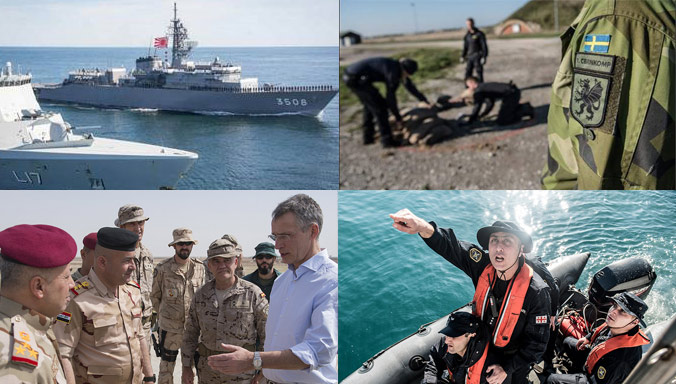The Allies seek to contribute to the efforts of the international community in projecting stability and strengthening security outside NATO territory. One of the means to do so is through cooperation and partnerships. Over more than 25 years, the Alliance has developed a network of partnerships with non-member countries from the Euro-Atlantic area, the Mediterranean and the Gulf region, and other partners across the globe. NATO pursues dialogue and practical cooperation with these nations on a wide range of political and security-related issues. NATO’s partnerships are beneficial to all involved and contribute to improved security for the broader international community.

- Partners are part of many of NATO’s core activities, from shaping policy to building defence capacity, developing interoperability and managing crises.
- NATO’s programmes also help partner nations to develop their own defence and security institutions and forces.
- In partnering with NATO, partners can:
- share insights on areas of common interest or concern through political consultations and intelligence-sharing;
- gain access to advice and support as they reform and strengthen defence institutions and capacities;
- participate in a rich menu of education, training and consultation events (over 1,200 events a year are open to partners through a Partnership Cooperation Menu);
- prepare together for future operations and missions by participating in exercises and training;
- contribute to current NATO-led operations and missions;
- share lessons learned from past operations and develop policy for the future;
- work together with Allies on research and capability development.
- Through partnership, NATO and partners also pursue a broad vision of security:
- integrating gender perspectives into security and defence;
- fighting against corruption in the defence sector;
- enhancing efforts to control or destroy arms, ammunition and unexploded ordnance;
- advancing joint scientific projects.
- Partnership has evolved over the years, to encompass more nations, more flexible instruments, and new forms of cooperation and consultation.
